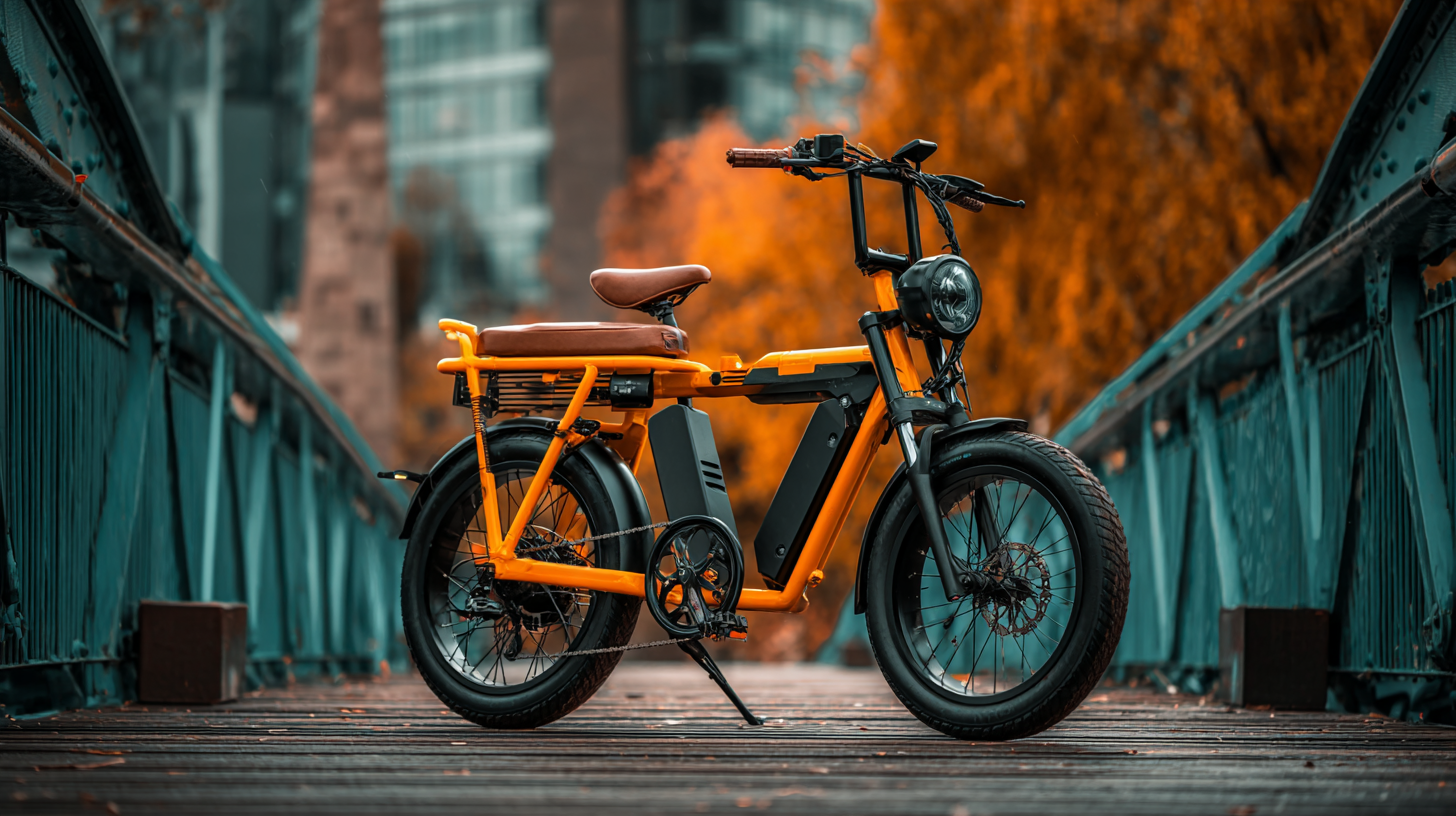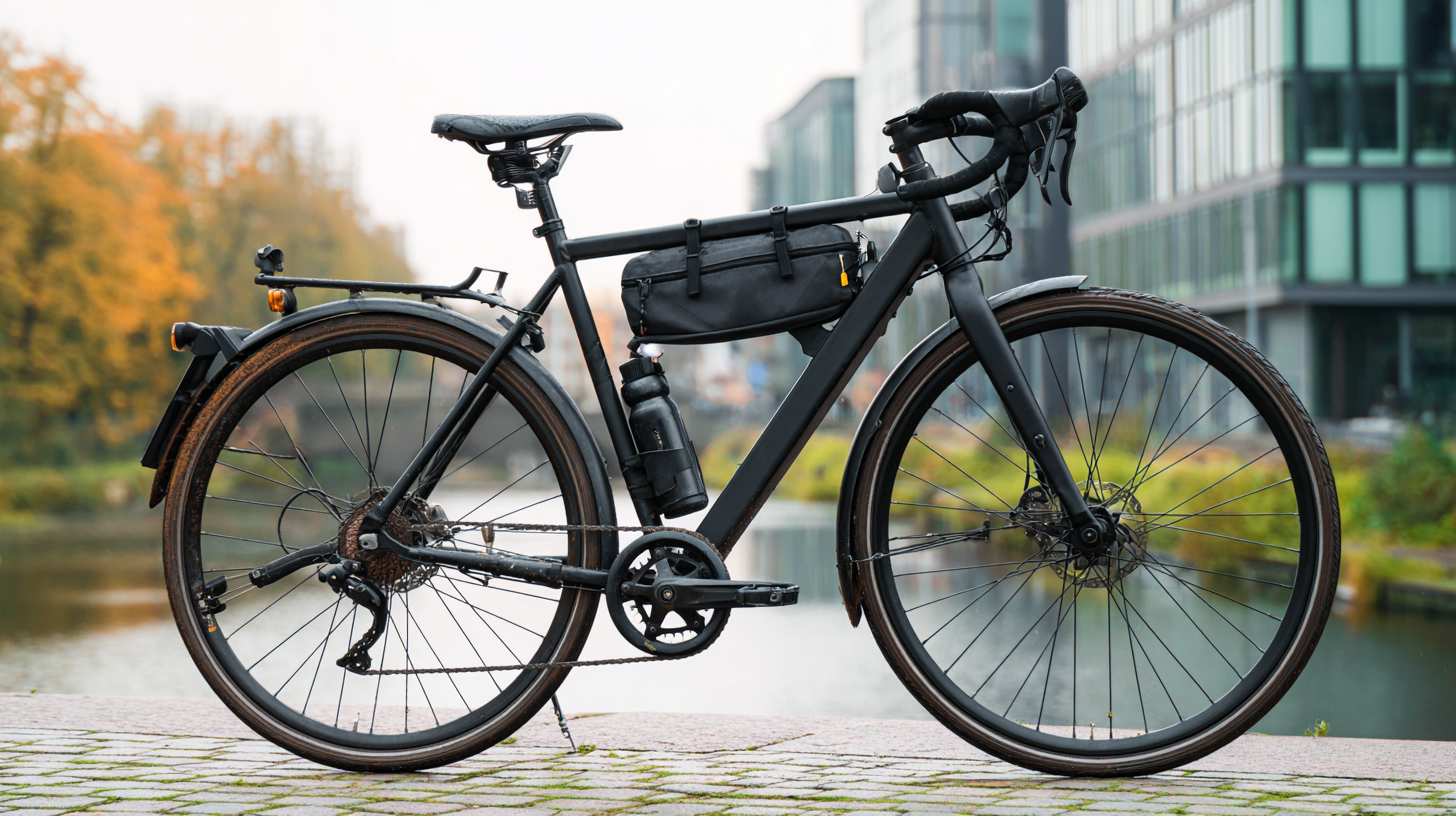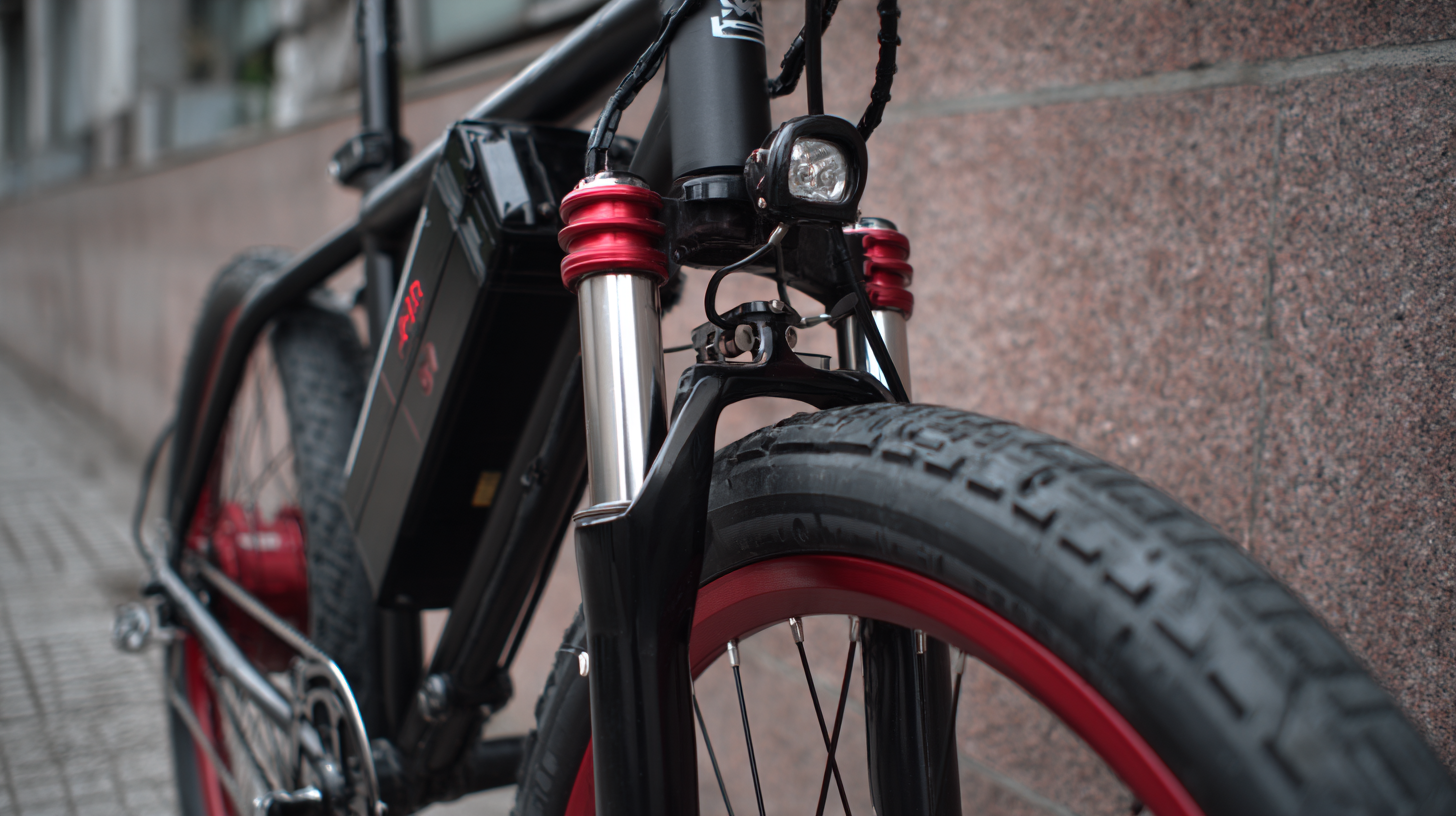Transforming Urban Commuting: Overcoming Challenges with Best Electric Bike Kit Conversions
Urban commuting is undergoing a significant transformation, with electric bike kit conversions emerging as a popular solution to combat the challenges of city travel. According to a recent report by the World Economic Forum, urban areas are projected to see a 60% increase in population by 2030, leading to heightened traffic congestion and pollution levels. This scenario calls for innovative alternatives to traditional commuting methods. Electric bike kit conversions not only provide an eco-friendly option but also enable commuters to navigate through congested city streets more efficiently. A study by the Outdoor Industry Association found that e-bikes can reduce commuting costs by up to 60%, making them an appealing choice for budget-conscious urban dwellers. As we delve into the specific challenges faced by urban commuters today, this blog will outline a comprehensive checklist for selecting the best electric bike kit conversion to meet your commuting needs, ensuring a seamless and sustainable transition to an electric biking lifestyle.

The Rise of Electric Bikes: A Solution for Urban Commuting Challenges
The rise of electric bikes is rapidly transforming urban commuting, offering a practical solution to the growing challenges of congested city traffic. With the global bicycle market expected to reach a staggering $100.74 billion by 2024, and further grow to $245.33 billion by 2032, the significance of electric bikes within this market cannot be understated. This surge corresponds with the anticipated increase in the electric bike market, projected to grow from $12.79 billion in 2025 to $33.41 billion by 2032, at an impressive compound annual growth rate (CAGR) of 14.7%.
Moreover, the electric cargo tricycle segment is also experiencing substantial growth, expected to exceed $231.6 million in 2023 and maintain a CAGR of around 7.7% from 2024 to 2032. As urbanization continues to accelerate alongside the growth of e-commerce, electric bikes and tricycles are becoming essential tools for efficient transportation of goods and daily commutes. The adaptability and efficiency of electric bikes present them as a formidable answer to the challenges faced by urban commuters, encouraging shifts towards more sustainable and effective transportation solutions.
Transforming Urban Commuting: Electric Bike Conversion Kit Popularity
This graph illustrates the growing popularity of electric bike conversion kits over the past few years. As urban commuting challenges continue to rise, more people are turning to electric bikes as a viable solution, leading to a significant increase in the number of conversion kits sold from 2020 to 2023.
Understanding Electric Bike Kits: Features and Benefits for Commuters
Electric bike kits are revolutionizing urban commuting by transforming traditional bicycles into powerful electric-assisted vehicles. These kits typically consist of a motor, battery, and necessary components for installation, making it easier than ever for commuters to customize their rides. The key features of these kits include various motor positions—front, rear, or mid-drive—allowing cyclists to choose based on their specific riding preferences. Moreover, battery options range in capacity, offering flexibility based on daily commuting distances and frequency of use.
The benefits for commuters are substantial. Electric bike kits not only enhance speed and reduce travel times but also alleviate the physical strain associated with longer distances or hilly terrains. This accessibility encourages more individuals to embrace cycling as a viable commuting option, leading to reduced traffic congestion and a smaller carbon footprint. Additionally, many kits come equipped with advanced features such as regenerative braking, pedal assist settings, and smartphone integration, further enhancing the overall commuting experience.
By understanding the diverse options and advantages of electric bike kits, urban commuters can make informed choices that best suit their needs and lifestyle.
Choosing the Right Electric Bike Kit: A Comprehensive Buyer’s Guide
When selecting the perfect electric bike kit for your commuting needs, it’s crucial to consider several key factors. First, the compatibility with your existing bicycle is paramount. Ensure that the kit matches your bike’s frame size and wheel dimensions. Most kits are designed for specific types of bikes, such as mountain or road bikes, so doing thorough research before purchasing will save you time and potential frustration.

Another vital consideration is the type and capacity of the battery. A high-capacity battery offers an extended range, making it ideal for longer commutes. Look for a lithium-ion battery that strikes a balance between weight and power, allowing for a smooth riding experience without excess bulk. Additionally, consider your local terrain; if you navigate steep hills, opt for a more powerful motor kit that will provide adequate assistance. By keeping these factors in mind, you can choose the right electric bike kit that transforms your daily commute into an enjoyable and efficient journey.
Overcoming Common Conversion Challenges: Tips and Tricks for Success
 Converting a traditional bike into an electric one can be an exhilarating yet challenging endeavor. One of the most common obstacles faced by enthusiasts is selecting the right electric bike kit. It’s crucial to research and choose a kit that aligns with your bike frame and riding preferences. Pay attention to factors such as battery range, motor power, and installation ease. Reading user reviews and seeking expert advice can significantly enhance your decision-making process, ensuring your conversion journey starts on the right foot.
Converting a traditional bike into an electric one can be an exhilarating yet challenging endeavor. One of the most common obstacles faced by enthusiasts is selecting the right electric bike kit. It’s crucial to research and choose a kit that aligns with your bike frame and riding preferences. Pay attention to factors such as battery range, motor power, and installation ease. Reading user reviews and seeking expert advice can significantly enhance your decision-making process, ensuring your conversion journey starts on the right foot.
Once you’ve settled on a kit, the installation process can also present challenges. Properly wiring the motor and battery, securing components, and fine-tuning settings require attention to detail and patience. A helpful tip is to document each step during the installation, allowing for easier troubleshooting later on. Additionally, familiarizing yourself with basic electrical principles can be beneficial. If the conversion feels overwhelming, consider joining online forums or local groups where you can exchange insights and receive advice from seasoned converters. With the right preparation and support, transforming your ride into an electric experience can be both effective and enjoyable.
Enhancing Urban Mobility: The Environmental Impact of Electric Bikes
In recent years, electric bikes have emerged as a transformative solution for urban mobility, addressing the pressing challenges of congested city streets and rising pollution levels. The environmental impact of electric bikes is profound; they offer a sustainable alternative to traditional vehicles, reducing the carbon footprint associated with urban commuting. By utilizing electric bike kits for conversions, cyclists can enjoy an efficient mode of transport while also contributing to a greener planet. These kits not only make cycling accessible to a wider audience but also promote the use of clean energy, further minimizing environmental harm.
Moreover, electric bikes significantly decrease reliance on fossil fuels. Unlike conventional cars, which emit harmful greenhouse gases, electric bikes produce zero emissions during operation. This shift from gas-powered vehicles to electric ones fosters a healthier urban ecosystem. Cities grappling with air quality issues stand to benefit immensely from a widespread adoption of electric bicycles. Lower emissions not only improve public health but also contribute to less noise pollution, creating a more pleasant urban environment for residents and visitors alike. As urban centers continue to expand, harnessing the potential of electric bike kits will be vital in reshaping city life towards a more sustainable future.



